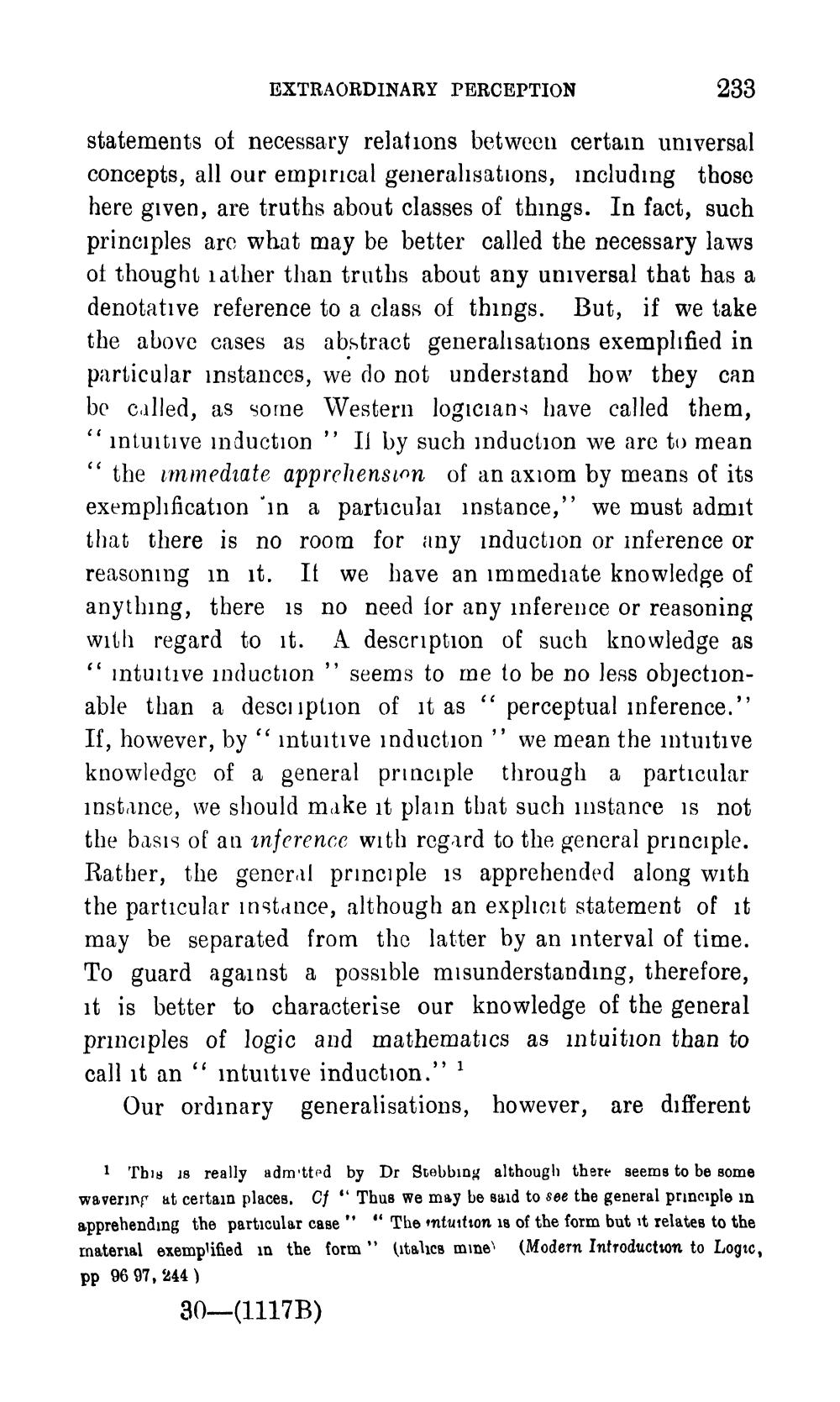________________
233
66
statements of necessary relations between certain universal concepts, all our empirical generalisations, including those here given, are truths about classes of things. In fact, such principles are what may be better called the necessary laws of thought lather than truths about any universal that has a denotative reference to a class of things. But, if we take the above cases as abstract generalisations exemplified in particular instances, we do not understand how they can be called, as some Western logicians have called them, intuitive induction If by such induction we are to mean the immediate apprehension of an axiom by means of its exemplification in a particular instance," we must admit that there is no room for any induction or inference or reasoning in it. If we have an immediate knowledge of anything, there is no need for any inference or reasoning with regard to it. A description of such knowledge as intuitive induction seems to me to be no less objectionable than a description of it as If, however, by "intuitive induction we mean the intuitive knowledge of a general principle through a particular instance, we should make it plain that such instance is not the basis of an inference with regard to the general principle. Rather, the general principle is apprehended along with the particular instance, although an explicit statement of it may be separated from the latter by an interval of time. To guard against a possible misunderstanding, therefore, it is better to characterise our knowledge of the general principles of logic and mathematics as intuition than to call it an intuitive induction."
66
..
(C
perceptual inference."
66
99 1
Our ordinary generalisations, however, are different
((
EXTRAORDINARY PERCEPTION
..
29
64
1 This is really admitted by Dr Stebbing although there seems to be some wavering at certain places. Cf "Thus we may be said to see the general principle in apprehending the particular case The intuition 18 of the form but it relates to the material exemplified in the form " (italics mine pp 96 97, 244)
(Modern Introduction to Logic,
30-(1117B)




